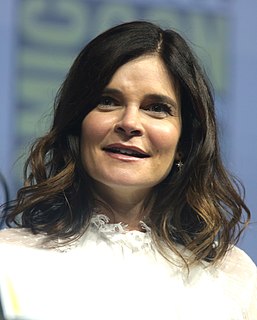A Quote by Henry Ward Beecher
There is no friendship, no love, like that of the parent for the child.
Related Quotes
A conscious parent is not one who seeks to fix her child or seek to produce or create the 'perfect' child. This is not about perfection. The conscious parent understands that is journey has been undertaken, this child has been called forth to 'raise the parent' itself. To show the parent where the parent has yet to grow. This is why we call our children into our lives.
The parent who loves his child dearly but asks for nothing in return might qualify as a saint, but he will not qualify as a parent. For a child who can claim love without meeting any of the obligations of love will be a self-centered child and many such children have grown up in our time to become petulant lovers and sullen marriage partners because the promise of unconditional love has not been fulfilled.
Without a sense of the shame or guilt of his or her action, the child will only be hardened in rebellion by physical punishment. Shame (and praise) help the child to internalize the parent's judgment. It impresses upon the child that the parent is not only more powerful but also right. Like the Puritans, Locke (in 1690), wanted the child to adopt the parent's moral position, rather than simply bow to superior strength or social pressure.
The traditional paradigm of parenting has been very hierarchical, the parent knows best and very top down. Conscious parenting topples [this paradigm] on its head and creates this mutuality, this circularity where both parent and child serve each other and where in fact, perhaps, the child could be even more of a guru for the parent .... teaching the parent how the parent needs to grow, teaching the parent how to enter the present moment like only children know how to do.
This is the hope of many adolescent girls--to capture a parent's heart with love for them as they are, as people. They reject thenotion of being loved just because they are the child of the parent. They want the parent to fall in love with them all over again, because being new, they deserve a new love.
Training moments occur when both parents and children do their jobs. The parent's job is to make the rule. The child's job is to break the rule. The parent then corrects and disciplines. The child breaks the rule again, and the parent manages the consequences and empathy that then turn the rule into reality and internal structure for the child.





































